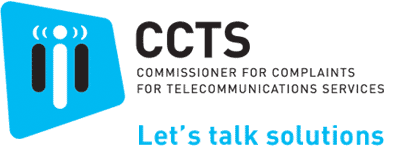
OTTAWA — Consumer complaints to the Commission for Complaints for Telecom-television Services (CCTS) decreased 19% this year compared to last, according to the organization’s 2019-20 annual report released this morning.
This is the first year-over-year decline in the number of complaints reaching the CCTS since the 2015-16 fiscal year, says this year’s report, which covers the period from August 1, 2019 to July 31, 2020.
In total, 15,868 complaints were filed this year, with 89% of them being successfully resolved by the parties following CCTS’s intervention. These complaints raised almost 43,000 issues, with the most common complaints related to billing problems, followed by disclosure issues (information not being fully or clearly provided).
Broken down by service type, the largest number of complaints were related to wireless services (44.3% of all issues raised this year), followed by Internet (27.5%), TV (13.7%), local phone (13.3%) and long distance/other (1.2%).
Wireless customers raise more disclosure issues (15% of all wireless issues) than any other issues, while intermittent/inadequate quality of service is the leading Internet issue (accounting for 14% of all issues raised by Internet customers). Problems related to incorrect billing charges lead the TV and landline customers.
The brands with the most total complaints accepted by the CCTS this year are Bell (24.4% of all complaints), followed by Rogers (11.4%), Telus (7.4%), Fido (7.2%), Freedom Mobile (6.8%) and Virgin Mobile (6.6%), says the report.
CCTS commissioner and CEO Howard Maker notes in the report the overall decrease in consumer complaints to the CCTS this year is an encouraging sign.
“This year, we saw significant decreases in complaints from customers of some service providers, including Bell (35% fewer complaints) and Cogeco (almost 69% fewer). We are hopeful that service providers are increasingly seeing the value of developing more robust and effective internal complaint-handling processes, and that more customers are seeing their complaints successfully addressed through interaction directly with their provider,” writes Maker in his commissioner’s message at the beginning of the report.
Of all the complaints concluded by the CCTS this year, 27% of them required an investigation. In the case of 14 complaints where an informal resolution was not reached, the CCTS made recommendations which were later accepted by both the customer and the service provider. In another two cases, the CCTS needed to issue decisions because its recommendations had been rejected by one of the parties.
Several of the customer complaints this year involved alleged breaches of either the Wireless Code, the Deposit and Disconnection Code (D&D Code for local phone service), the Television Service Provider Code (TVSP Code) and the new Internet Code, which the CCTS began to administer for the first time when it took effect on January 31, 2020.
The CCTS confirmed 184 breaches of the Wireless Code this year, a 16.5% increase over last year. Of the confirmed breaches, the most common violations were to Section B covering contracts and related documents (36.4% of all confirmed breaches to the Wireless Code) and Section C related to the critical information summary requirement (28.8% of total confirmed breaches).
While Telus’s Koodo brand had no breaches of the Wireless Code last year, it was responsible for 101 breaches this year (54.9% of all confirmed Wireless Code breaches), according to the CCTS. Bell had 27 breaches of the Wireless Code (14.7% of all confirmed breaches), Rogers had 17 (9.2%), Telus had 15 (8.2%) and Rogers brand Fido had 13 (7.1%). CCTS notes in its report Freedom Mobile had 25 breaches of the Wireless Code last year, but only one breach this year (a decrease of 96%).
As for the new Internet Code, in the six months since the CCTS began administering the Code (from January 31 to July 31, 2020), there were only two confirmed breaches: one by Bell related to Section A (Clarity) and one by Virgin Mobile, which is a Bell company, related to Section G (Contract cancellation and extension).
The CCTS also confirmed nine breaches of the D&D Code (seven related to Section 3.2 regarding the requirement to provide local phone customers with notice at least 14 days prior to disconnection) and seven breaches of the TVSP Code (five by Bell, one by Rogers and one by Telus).
“In spite of challenges presented by the Covid-19 pandemic, I am proud to report that the CCTS dispute resolution process has continued uninterrupted,” said Maker in a press release. “We continue to be a voice for consumers and offer trusted advice to service providers to facilitate ongoing improvements in accountability and transparency for Canadians.”
The CCTS also noted in its press release it saw an increase in complaints about the quality of home Internet services between March and July 2020, as so many Canadians are now working at home, although it says it’s too early to know the full impact of the pandemic on consumer complaints.
Among the key events for the CCTS this year, it retained consulting firm cameron.ralph.khoury (CRK) to conduct a full review of CCTS operations, including its service delivery model. CRK provided a report in August to the CCTS board, which is now reviewing its recommendations, writes board chair Catherine Aczel Boivie in the report.
The CCTS board of directors also welcomed two newly elected consumer group representatives, McGill University law professor Geneviève Saumier and Ryerson University professor Catherine Middleton (Ted Rogers School of Information Technology Management), who assumed their board duties in October 2020.
The full CCTS 2019-20 Annual Report is available here.



